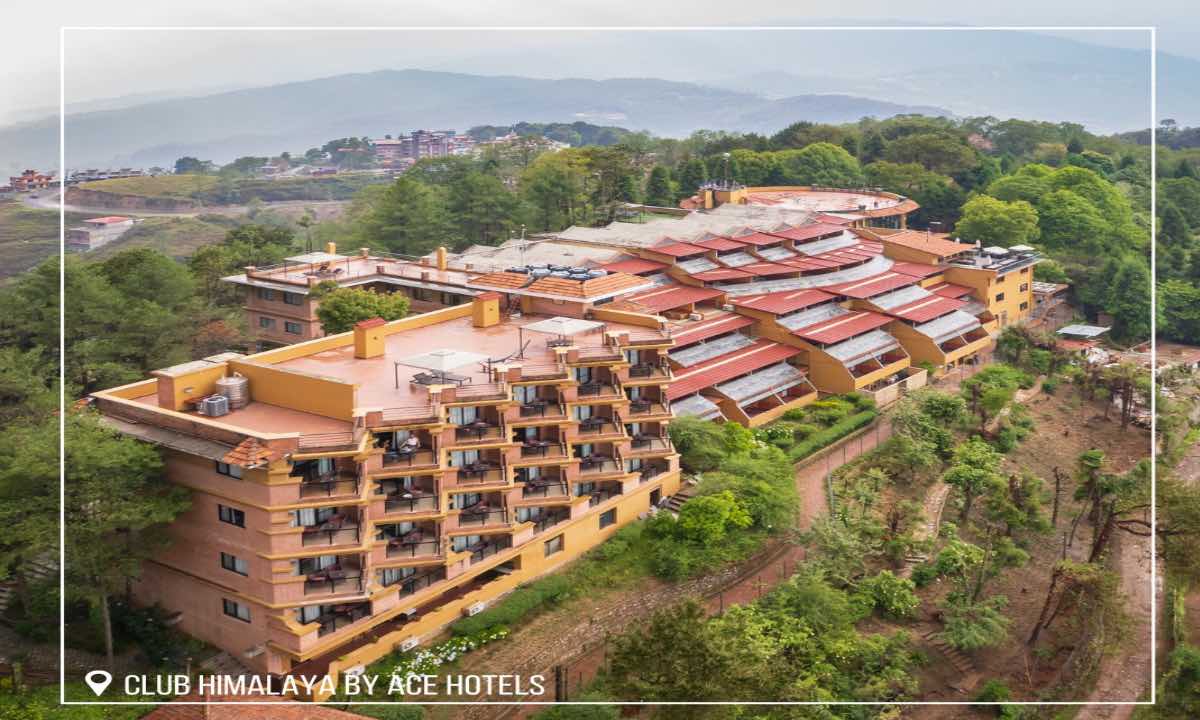US Embassy’s Creator’s Mela kicks off in the capital
15 hours ago
We are a team of professional management and journalists — one of the best in the Nepali media. Our duty toward our readers is to provide them with impartial news, bold views, in-depth analysis and thought-provoking commentary. We shall do this without fear or favor, and we shall be guided by nothing but our conscience.
Know More
KATHMANDU, April 10: Club Himalaya Nagarkot has taken commendable measures to foster sustainability and preserve the paradise that surrounds it. More than just a destination, it has demonstrated a commitment to a sustainable future, blending luxurious hospitality with responsible stewardship of the stunning natural environment.
The hotel recognizes the profound importance of preserving the natural beauty that surrounds us. Their commitment to sustainability is deeply ingrained in our ethos, and take pride in implementing eco-friendly practices throughout our resort. Here's a glimpse into their efforts to minimize our environmental footprint:
1. Green Initiatives:

Waste Management: The hotel employs efficient waste separation and recycling programs, minimizing our impact on local landfills.
Water Conservation: Their water-saving initiatives include rainwater harvesting, all waste water is recycled via gravity system into elegant, biodiverse gardens which produce lovely flowers as well as vegetables that can be eaten by humans and the use of eco-friendly plumbing fixtures to reduce water consumption.
2. Eco-Friendly Architecture:
Local Materials: Whenever possible, they source building materials locally, supporting the community and minimizing transportation-related emissions.
3. Organic Gardens and Farm-to-Table:
Organic Produce: Their commitment to sustainability extends to our kitchens, where we prioritize locally sourced, organic ingredients to reduce the carbon footprint associated with food production. While the hotel don't directly manage the nearby farms, it actively contribute to their success by providing our food waste to nourish their pigs and chickens. Embracing a farm-to-table approach, we proudly source our pork, eggs, chicken, vegetables, and honey directly from these local partners. With their support, three farms in the region are flourishing, and we take great pride in their growth. Moreover, this collaboration extends beyond mere support, as these farms play a crucial role in managing the organic waste generated by our hotel, creating a symbiotic relationship that benefits both parties and fosters a more sustainable future.

Herb Gardens: One can enjoy fresh herbs grown on-site, adding flavor to he hotel’s dishes while minimizing the need for packaging and transportation.
4. Responsible Tourism:
Community Engagement: The hotel actively engage with the local community, supporting initiatives that contribute to their well-being and the preservation of cultural heritage. The hotel invest a percentage of revenue back into community projects or sustainability projects
Educational Programs: Guests are invited to participate in eco-awareness programs, fostering a sense of responsibility towards the environment.
Tours and activities organized by local guides and businesses offered
Local artists are offered a platform to display their talents
The hotel provide guests with information regarding local ecosystems, heritage and culture, as well as visitor etiquette.
5. Wilderness Conservation:
Nature Trails: Explore the Himalayan wilderness through nature trails, designed to showcase the beauty of the landscape while minimizing impact on delicate ecosystems.
Flora and Fauna Protection: The hotel actively participate in local conservation efforts, ensuring the protection of the diverse flora and fauna that call the Himalayas home.


- by Republica

- by Republica


- by Sara Pahari
Leave A Comment